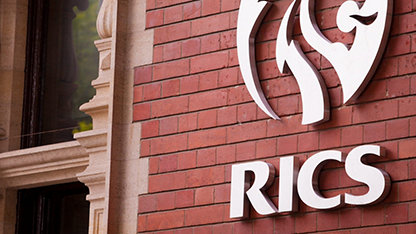RICS Global Construction Monitor Q1 2022
- 84% of respondents single out material costs to be impeding construction activity
- Workloads are expected to rise for year ahead, but profit margins are now seen remaining flat
- Labour and supply chain shortages set to impact future workloads
There’s continued strong activity across the UK construction market despite rising concerns over shortage of materials, according to the latest RICS Global Construction Monitor for Q1 2022.
Looking at the all-sector level, +34% of respondents reported a rise in workloads in Q1, this slightly up from +33% in Q4 2021. Workloads are mainly being driven by a continued focus on infrastructure projects, as 41% more respondents reported a rise. Respondents also cited a firm commitment to energy infrastructure as over half (53%) reported a rise in workloads in this subsector (highest since records began).
However, despite the strength in current workloads the impact of global supply chain shortages is seriously impeding activity across UK. Indeed, this quarter +84% of respondents reported that availability of materials is a major constraint to current activity, albeit 7% lower than the global average. Also, labour shortages and access to the right skills doesn’t seem to be improving as the shortages continue to constrain the sector, almost three-quarters of respondents continue to highlight this issue.
Looking across the UK, the North East, Yorkshire, North West have posted the strongest growth in workloads with +41% of respondents citing a rise. However, when looking to the year ahead, it is the Midlands and East of England that anticipate the greatest pick-up in activity, with almost half of respondents (47%) anticipating growth.
Despite the current national challenges, respondents still remain optimistic for the coming year, but have moderated their expectations for profit margins. The net balance this quarter slid to +1% down from +10% in Q4 2021. Respondents to the UK monitor are yielding caution though as 42% more expect credit conditions to worsen over the coming twelve months, the weakest net balance since records began.
RICS Chief Economist, Simon Rubinsohn, commented: “The good news in the latest report is that the industry remains positive about the outlook for activity and that the generally upbeat mood can be seen not just in regard of infrastructure and housing development but also in the commercial sector. However, it is clear that the sector faces significant challenges which have been reflected in recent official data showing a sharp rise in vacancies across the construction industry. RICS numbers demonstrate these shortages are pretty much across the board including quantity surveyors and project managers as well as both skilled trades and more general labour. This, combined with problems around accessing building materials in the current environment, is exerting significant upward pressure on construction costs at the present time.”
-ENDS-
Notes for editors:
Explore some of our solutions to these market conditions:
The Global Construction and Infrastructure Conference will take place on Thursday 26th May 2022, which will look at how infrastructure can stimulate local economies, explore what’s needed in terms of investment to help countries absorb financial shocks and delve into how to solve the skills crisis through diversifying the sector.
We have a limited number of journalist spaces available for the conference, if you would like access, please contact abooth@rics.org
About RICS
We are RICS. Everything we do is designed to effect positive change in the built and natural environments. Through our respected global standards, leading professional progression and our trusted data and insight, we promote and enforce the highest professional standards in the development and management of land, real estate, construction and infrastructure.
Our work with others provides a foundation for confident markets, pioneers better places to live and work and is a force for positive social impact.
For more information:













